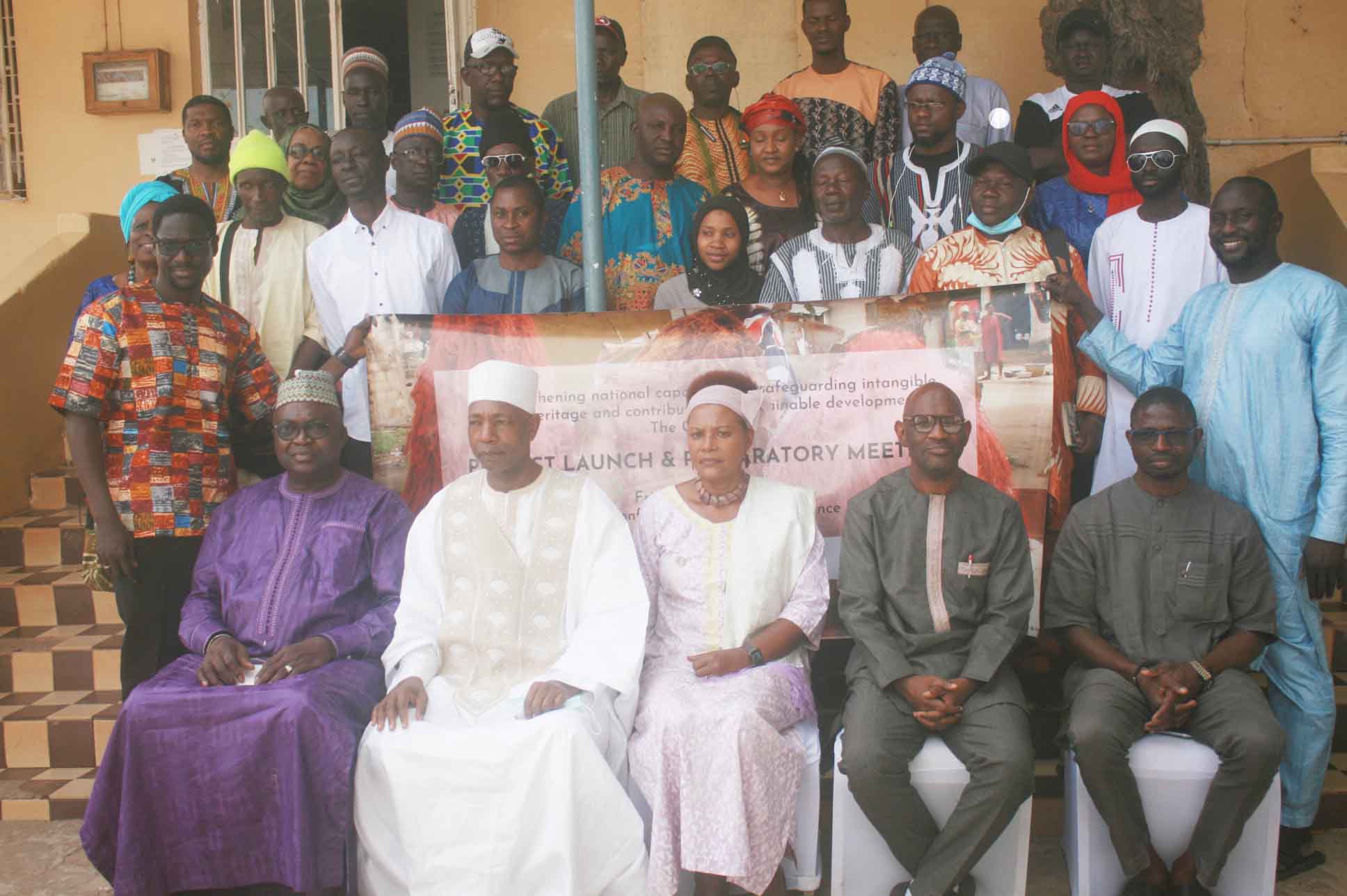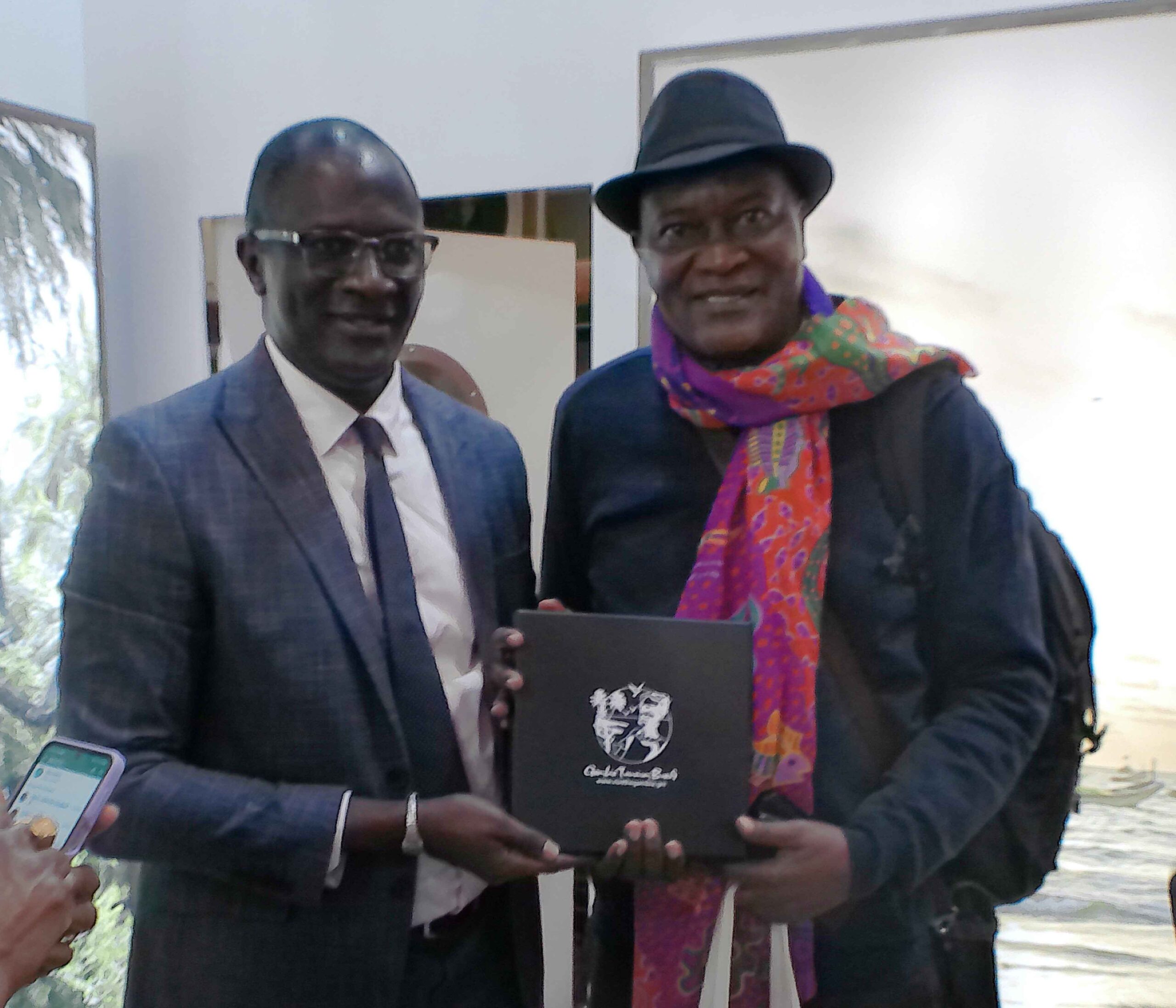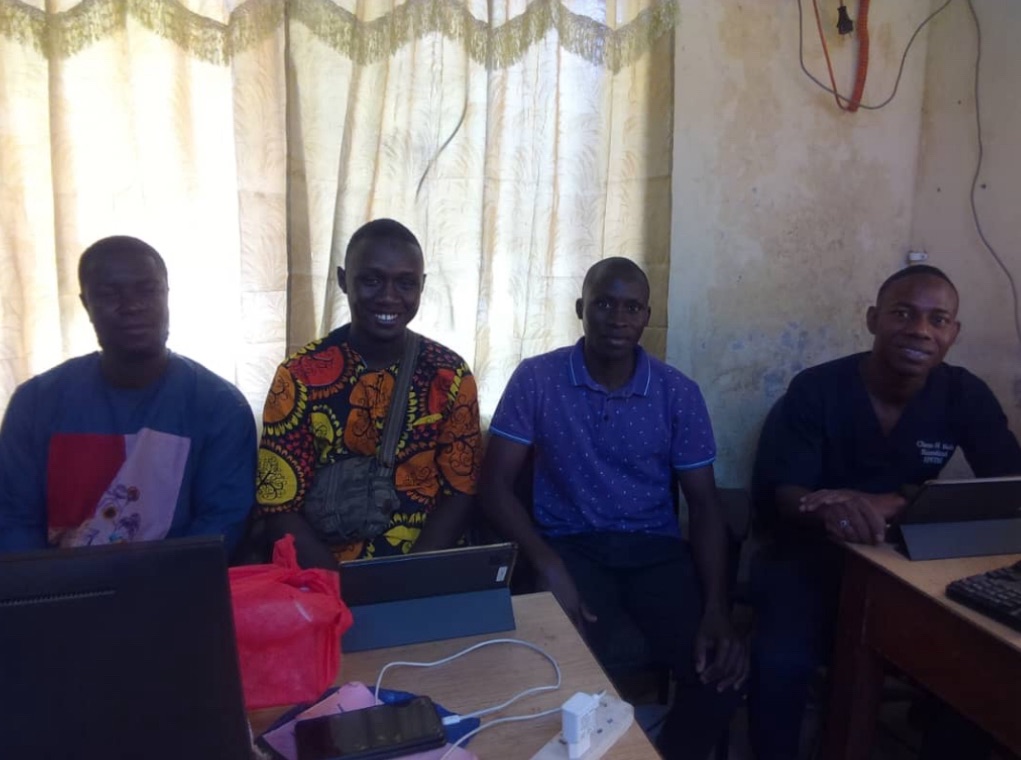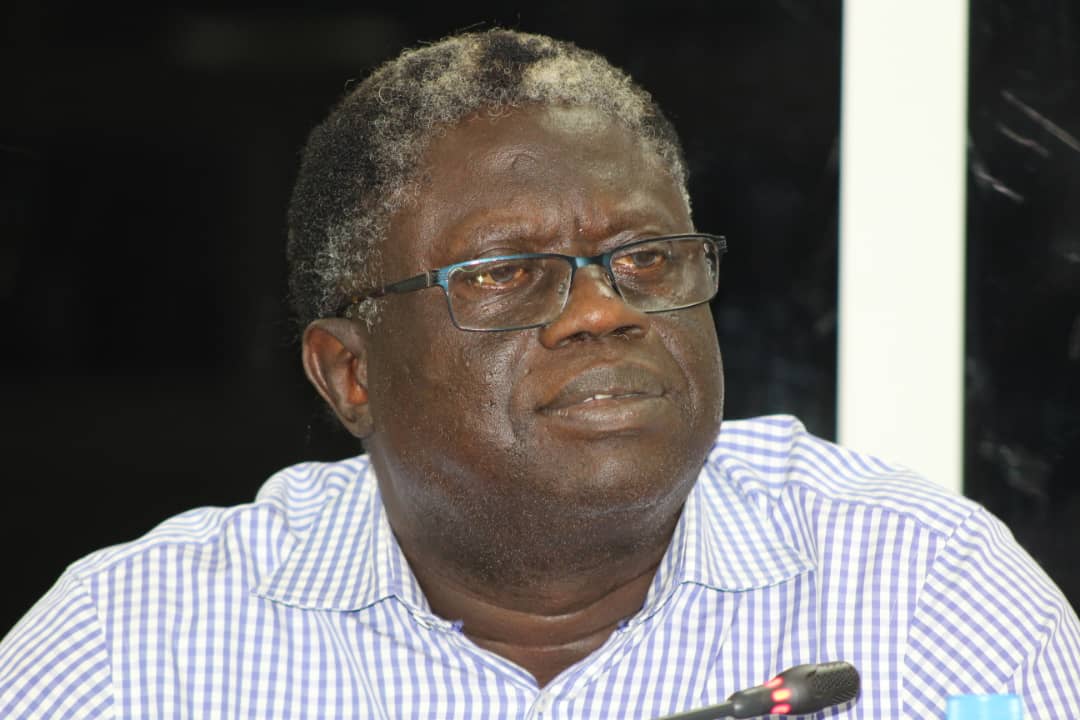By Yunus S Saliu
The National Centre for Arts and Culture under the aegis of Ministry of Tourism and Culture in conjunction with partners Friday, 1st April 2022 officially launched a $50,590.00 two-year project titled Strengthening National Capacities for Safeguarding Intangible Cultural Heritage and Contributing to Sustainable Development in The Gambia.
The about to start project is meant to build national capacities in the identification and safeguarding of ICH and to raise awareness among the general public of the importance of living heritage and its social value.
It will also, assist The Gambia’s communities in completing the first national inventory of Intangible Cultural Heritage (ICH).
Launching the project at the event held at the National Centre for Arts and Culture premises in Banjul, the Minister of Tourism and Culture, Honourable Hamat NK Bah disclosed that the project is funded by UNESCO and will be executed by NCAC and UNESCO Dakar regional office with support from living heritage experts from the UNESCO ICH network of experts.
Minister Bah explained that the project has been long in the making, saying the collaboration started as far back as early 2021 when the UNESCO Office in Dakar started working with the NCAC to design it “over a period of close to 16 months.”
And “it was finally approved in February and the implementing partnership agreement signed between the UNESCO and NCAC for it to begin in earnest as UNESCO has earmarked US$50,590.00 for the entire project for the NCAC segment,” he added.
The project, he noted, has a national coverage which is why “we have experts in ICH from all the seven regions, all ethnic groups and languages and religions, including a fair representation of women.”
According to the Minister of MoTC, the ICH elements that shall be most valuable to the inventory are those that have a strong practical value and can contribute to, for example, sustainable management of natural resources, or disaster risk reduction or the prevention of violent extremism.
The information, Minister Bah said, will be published into a document called Inventory of Gambian Intangible Cultural Heritage (ICH) which will help The Gambia in its development planning process, especially as it concerns the heritage and tourism sectors.
“The new Tourism Policy and Strategy and the new National Arts and Culture Policy, have mentioned the need for a national inventory of tangible and intangible heritage to enable the sectors know what is there to be valorized to provide new tourism products, and contribute to the strengthening of our national identity as Gambians,” he expressed.
The government has also supported institutional and legal framework for the culture and arts sector he said the government has given in supported institutional and legal framework for the culture and arts sector, this include increased financial support to the NCAC to enable it undertake its mandate.
He, therefore, thanked UNESCO for being their steadfast and trusted partners in the development of the cultural sectors in this country. Again, “thanks to the dignitaries from UNESCO and the UN who have joined in the launching and said very encouraging statements about the project and The Gambia,” he added.
Delivering a speech at the launching, Seraphine Wakana, United Nations Resident Coordinator in The Gambia, attested that The Gambia has a deep and incredibly rich history dating back from proto historical times, as well as a very rich heritage.
“The Stone Circles of the Senegambia, one of The Gambia’s World Heritage sites, represent an extraordinary concentration over 1,000 along the River Gambia, dating back from between 3rd and 16th century. They bear witness of the highly sophisticated social organizations that settled in The Gambia in the past and the enormous rich history this country has,” she explained.
Adding to that, she said, The Gambia is poised to benefit from a demographic dividend due to its youthful population which holds the key to its mid and long-term development.
“It is moving ahead in full swing in times of transition and change during key historical moments such as the witnessed in last and current months, which have positioned The Gambia as a model for transitioning societies. So, it is crucial to maintain the link with one’s own heritage, to safeguard the invisible ties that make up a cohesive society,” she noted.
Supportive of this, the UN Resident Coordinator said, government of The Gambia has placed culture at the heart of the Gambia NDP (2018-2021) and is developing public policies in line with this such as the recent Tourism Policy and Strategy (2022-2032) and National Arts and Culture Policy (2019-2029), which establish a link between the country’s development and the protection, safeguarding and promotion of both tangible and intangible heritage.
Therefore, “this is crucial and important to the work we do as the UN, this is why we continued to work closely with the NCAC through the International Trade Centre to support the creative industries and revive disappearing initiatives such as the Kankurang Festival in Janjanbureh,” she added.
Mr Dimitri Sanga, Director of the UNESCO Multi-Sectoral Regional Officer for West Africa, Sahel made some remarks about the project virtually while Mr Hassoum Ceesay, Director General of NCAC gave a detail background of the project.




